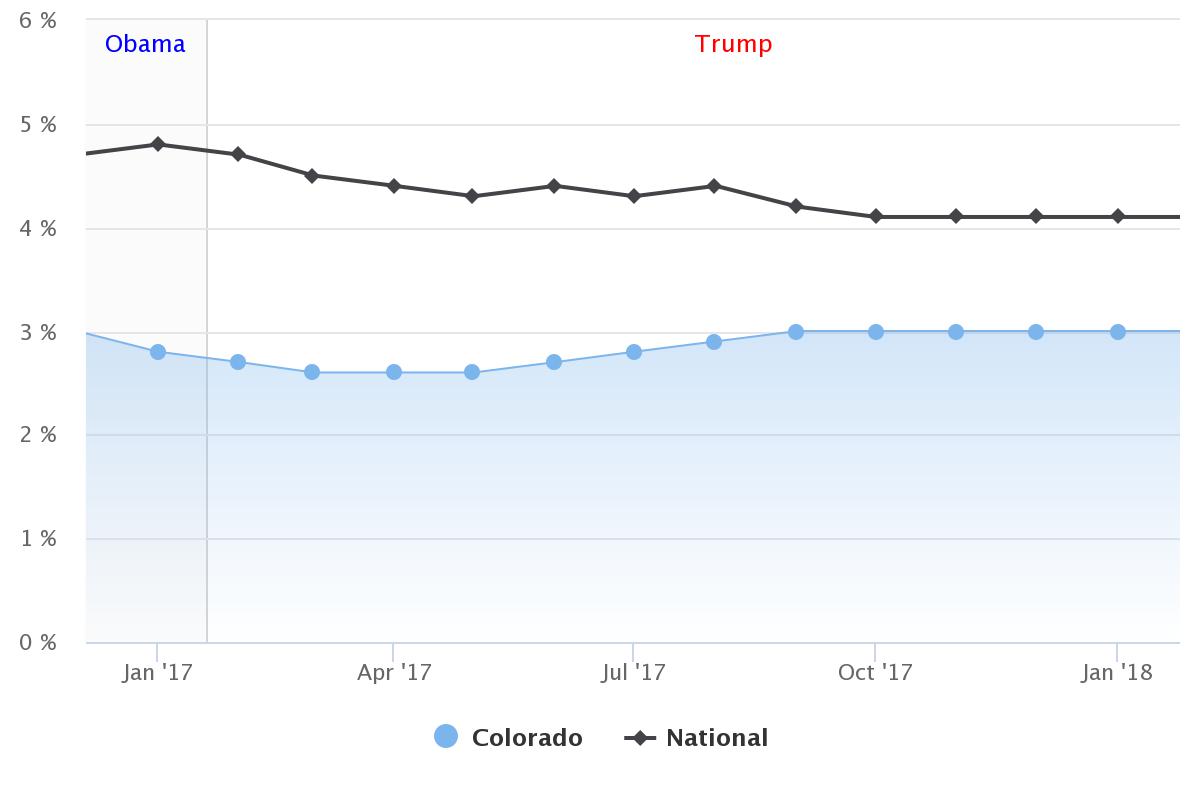
Here’s the good news from March: Colorado added 5,400 jobs, the employment rate is the 10th lowest in the U.S. at 3 percent and wages are rising.
Wage growth, though, is still relatively modest, up 4 percent from the same time in 2017, according to the latest data from the Colorado Department of Labor and Employment.
Given the very low unemployment rate, businesses are competing for talent from a small pool of available labor. The lack of labor should be leading to more wage growth, as businesses attempt to lure away talent from other companies, but that’s not what is happening.
You can pin the blame on a familiar Colorado gripe: The state’s booming population. Because people keep moving here, open jobs are getting filled.
“If there's a population influx of talented people that keeps coming in then there's no need to fight with the other firms over it, and the upward pressure on the wages isn't going to happen,” says Andrew Friedson, an economics professor at the University of Colorado Denver.
New businesses are forming at a rapid rate, there were 120,870 new business filings in the twelve months ending March 31, according to the Colorado Secretary of State. New firms create the more jobs than old firms, pointing to more open jobs in the future.
In CU Boulder business school surveys, businesses rate competition for talent as a top concern in the low unemployment environment. That concern helps explain the modest wage growth Colorado’s seen since last summer, despite rapid population growth.
“There is some upward pressure [on wages],” Friedson says. “But we're not at the point where firms are really fighting with each other. They may outbid here and there. Wages aren't moving up at such a fast rate because firms just don't have to fight that hard over workers.”
Talent will continue to file into Colorado because it offers a high quality of life and, of course, plentiful new jobs, he says. And it doesn't even matter what the worker does, because every sector added jobs in March.









